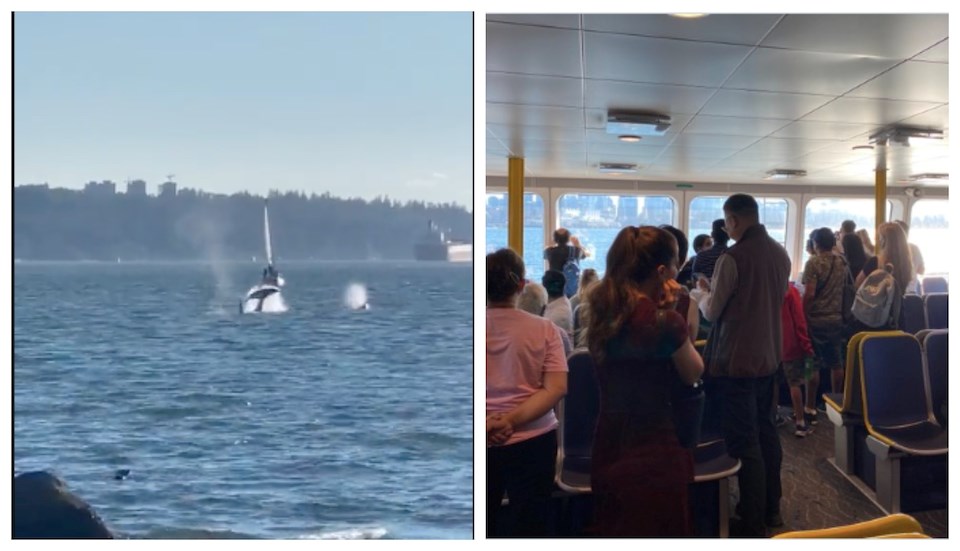You didn't need to join a Â鶹´«Ã½Ó³»whale-watching tour to soak in a rare sight this week.
Locals were delighted to see a pod of orca whales swimming in the Burrard Inlet Tuesday (Aug. 16).
Vancouverites flocked to the seawall to watch the black-and-white cetaceans making a splash in local waters. They brought their tails gracefully out of the ocean and misted the air with water out of their blowholes.
Orca's putting on a show in English Bay!
— My Â鶹´«Ã½Ó³»Live (@myvancouverlive)
Martyn Schmoll shared an image of a packed SeaBus with nearly all of its passengers turned toward the window to see the whales outside. He wrote: "A lovely moment of human solidarity as SeaBus passengers are treated to a front-row view of two killer whales in Burrard Inlet."
A lovely moment of human solidarity as Seabus passengers are treated to a front-row view of two killer whales in Burrard Inlet.
— Martyn Schmoll (@martynschmoll)
Orca whales, commonly referred to as "killer whales," are actually the largest dolphin species. The marine giants often get mistaken for whales due to the popular moniker and because of their size.
Orcas are members of the mammal family Delphinidae, which includes well-known oceanic dolphins such as the bottlenose and common dolphins, as well as some lesser-known species like the rare, petite Hector's dolphins.
Southern resident orcas primarily feast on Chinook salmon, whereas transient orcas will eat just about everything else, from sharks to seals to whales and much more.
- Find out seven dolphins you could spot in B.C. waters.



